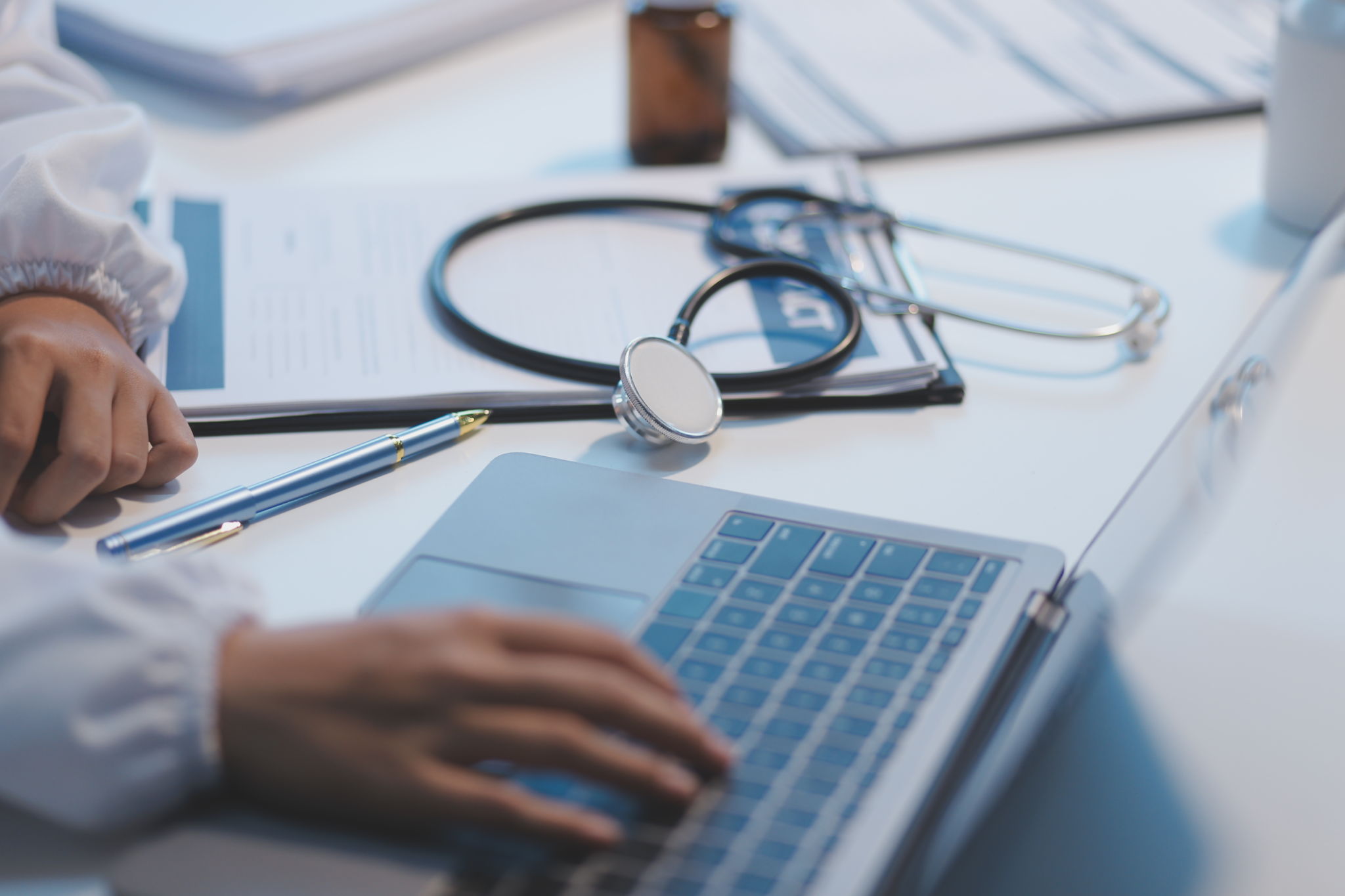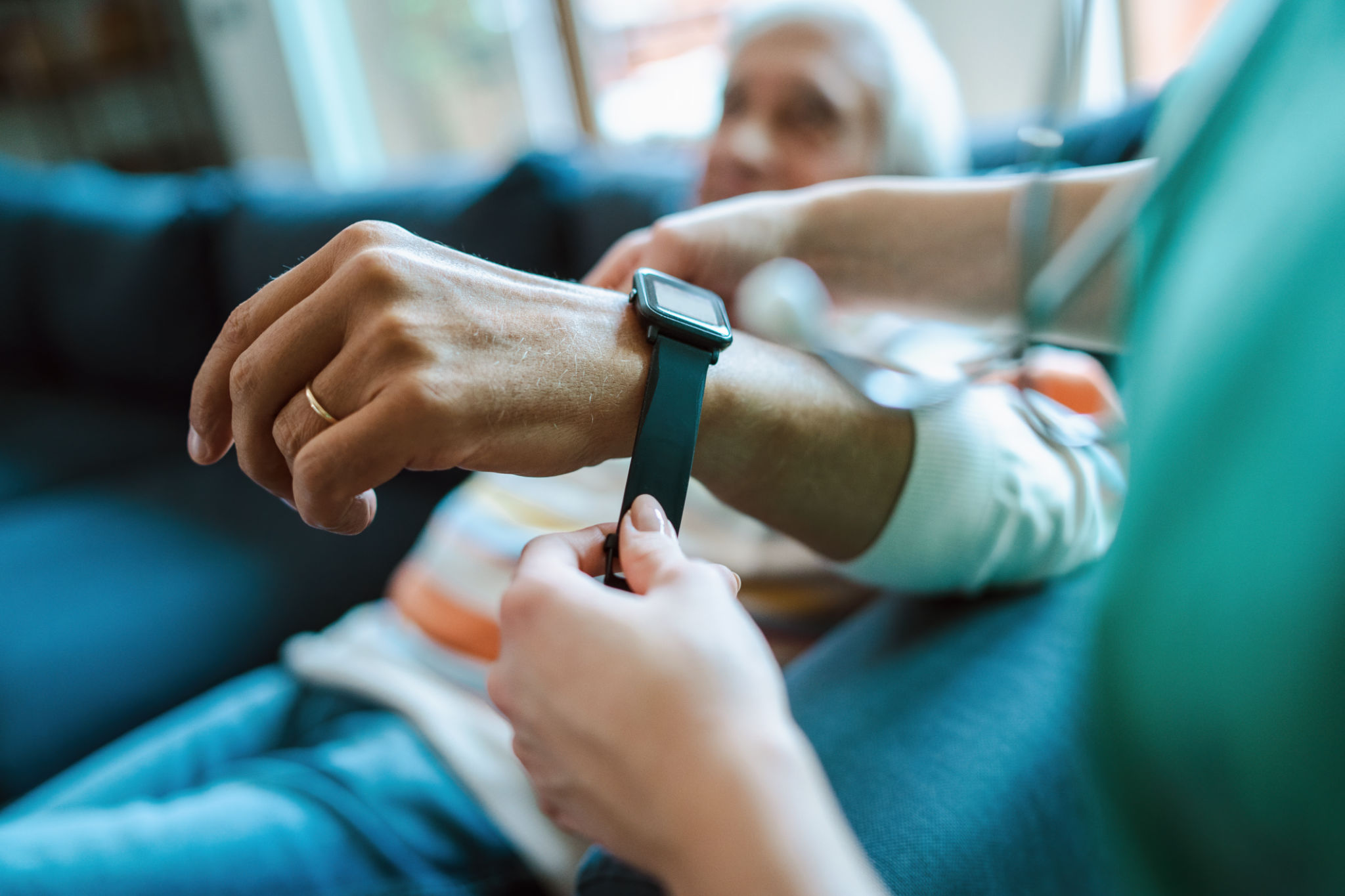Exploring the Intersection of AI and IoT in Modern Healthcare
Ri
The Convergence of AI and IoT in Healthcare
The healthcare industry is undergoing a transformative shift driven by the convergence of Artificial Intelligence (AI) and the Internet of Things (IoT). This powerful combination is reshaping how medical services are delivered, enhancing patient care, and optimizing operational efficiencies. As these technologies advance, they promise to solve some of the most pressing challenges in healthcare today.

Enhancing Patient Monitoring and Care
One of the most significant impacts of AI and IoT in healthcare is the enhancement of patient monitoring. IoT devices, such as wearable sensors, continuously collect data on vital signs like heart rate, blood pressure, and glucose levels. This real-time data is then processed by AI algorithms to detect anomalies and predict potential health issues before they become critical. As a result, healthcare providers can offer proactive care, reducing hospital admissions and improving patient outcomes.
Furthermore, AI-powered analytics provide healthcare professionals with actionable insights, allowing for personalized treatment plans tailored to individual patients' needs. This level of customization not only improves patient satisfaction but also increases the effectiveness of medical interventions.

Streamlining Healthcare Operations
Beyond patient care, the intersection of AI and IoT plays a vital role in streamlining healthcare operations. AI algorithms analyze data from IoT devices to optimize hospital resource management. For instance, predictive analytics can forecast equipment maintenance needs, reducing downtime and ensuring that critical tools are always available when needed.
Moreover, AI-driven IoT systems enhance supply chain management by predicting inventory requirements and automating restocking processes. This minimizes waste and ensures that healthcare facilities are always equipped with the necessary supplies, ultimately leading to cost savings and more efficient operations.
Revolutionizing Medical Research
The synergy between AI and IoT is also revolutionizing medical research. The vast amount of data generated by IoT devices serves as a rich resource for researchers, enabling them to conduct more comprehensive studies. AI algorithms help process this data quickly and accurately, uncovering patterns that may have been previously undetectable.

In clinical trials, AI and IoT facilitate remote monitoring of participants, ensuring adherence to protocols and capturing real-time data. This accelerates the research process and enhances data accuracy, leading to faster development of new treatments and therapies.
Challenges and Considerations
While the benefits of integrating AI and IoT in healthcare are substantial, there are challenges to consider. Data privacy and security remain paramount concerns as IoT devices collect sensitive health information. Ensuring robust cybersecurity measures and adhering to regulatory standards is essential to protect patient data from breaches.
Additionally, the integration of AI and IoT requires significant investment in infrastructure and training for healthcare professionals. Organizations must be prepared to adopt new technologies and adapt their workflows to fully leverage these advancements.

The Future of AI and IoT in Healthcare
As AI and IoT technologies continue to evolve, their potential impact on healthcare will only grow. Future innovations may include advanced predictive analytics for disease outbreaks, improved patient engagement through virtual assistants, and even autonomous surgical procedures powered by AI-driven robotics.
Embracing these technologies will require collaboration across industries, including tech companies, healthcare providers, and regulatory bodies. By working together, stakeholders can overcome current challenges and unlock the full potential of AI and IoT in modern healthcare.
